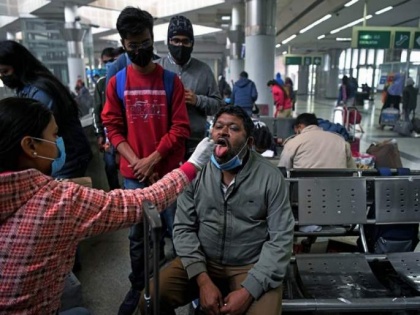WHO says, risk of new covid variant 'Omicron' remains very high
By Lokmat English Desk | Updated: December 29, 2021 11:56 IST2021-12-29T11:55:01+5:302021-12-29T11:56:25+5:30
New omicron variant of the coronavirus has raised concerns around the world. The WHO said on Wednesday that the ...

WHO says, risk of new covid variant 'Omicron' remains very high
New omicron variant of the coronavirus has raised concerns around the world. The WHO said on Wednesday that the threat posed by the Omicron variant is still high. The WHO's response comes after an 11 per cent increase in the number of Covid-19 cases worldwide last week.
So far, 781 patients with omicron have been found in India. In a weekly epidemiological update to Covid-19, the WHO stated that "there is a new omicron variant behind the rapid spread of the coronavirus in many countries. It has even outgrown the countries where the Delta variant had previously thrived. According to the UN Health Agency, the overall risk of a new variant of Concern Omicron is high.
The WHO said: "Statistics that are constantly emerging show that the omicron is spreading and evolving much faster than the delta variant. The virus is spreading rapidly in countries like Britain and the United States. Omicron has now become a more influential variant in these countries. The combination of immune survival and being highly contagious could be the reason for the speed of the omicron. The WHO also said that corona cases in South Africa have dropped by 29 percent. South Africa was the first country to inform the WHO about the Omicron variant on November 24. Preliminary data from the UK, South Africa and Denmark show that the risk of hospitalization with an omicron infection is lower than in Delta.
However, more data is needed to understand the seriousness of omicron. Including oxygen consumption, mechanical ventilation, and death statistics. How serious is omicron for people who have been infected with covid before and who have been vaccinated. The WHO hopes that corticosteroid and interleukin 6 receptor blockers will be effective in treating critically ill patients. Preliminary data also suggest that monoclonal antibodies may be less beneficial in reducing the effects of omicron variants in the body.
Open in app